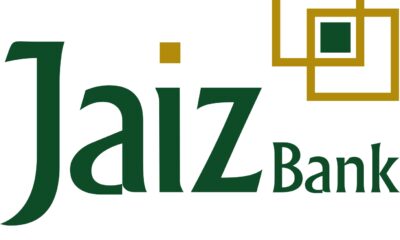- Crashed Bank Linked To Christ Embassy Fails To Refund Depositors
The defunct Suisse Microfinance Bank reportedly own by Believers Loveworld Incorporated, better known as Christ Embassy has been accused of ignoring court orders as it failed to pay its customers.
According to reports, documents obtained from the Corporate Affairs Commission revealed that Pastor Alabi Lanre, one of the clerics at the church, is listed as one of the bank owners.
Meanwhile, some of the affected customers have written a letter to the General Overseer, Pastor Chris Oyakhilome, seeking his assistance to help them recover their funds from the defunct bank.
Representatives of the bank reportedly visited the Christ Embassy between 2013 and 2016, promising parishioners huge interests for deposits before it stopped its operation, leaving many people in despair state.
Earlier, A Magistrate court sitting in Ikeja, Lagos State, has ordered the bank to refund the N12m deposited by three of the customers.
Mrs. O.A. Akokia, the Magistrate in separate judgments, ordered the bank to pay the customers, Adeduro Adefusi, N4m; Jerome Ojolo, N5m; and MegaCorp Consult Limited, N3m.
A lawyer for six affected customers, Mr. Muyiwa Olusa, in a letter to Oyakhilome, titled, ‘Special appeal for urgent intervention in payment of our clients’ deposit and accrued interests in Suisse Microfinance Bank Limited,’ appealed to the cleric to prevail on the bank to pay the customers.
“It is important to state that our clients are retirees who depend on their investments to cater to themselves and members of their families. As it is now, our clients are facing a lot of hardship as a result of their inability to access their deposits.
“Be that as it may, we request your quick intervention on this issue so that our clients can be paid their deposits and accrued interests. Our clients are law-abiding citizens and we do not want them to resolve to a situation where they will embarrass your ministry because all the directors who are alter ego of the bank are members of your ministry,” the letter said.
One of the customer Adefusi at the court stated that all the evidence presented by the claimant went unchallenged.
“The case of the claimant is that sometime in 2016, he invested in the defendant’s bank’s Trade and Investment Account with a deposit of N4m (by the conditions attached to the investment, an investor may liquidate his account at maturity date provided that a notice to liquidate his investment must be given at least 30 days before maturity date of the investment).
“After the maturity date of the investment, the claimant demanded the liquidation of his account, but the demands were refused by the defendant. Consequently, the claimant instructed his solicitors to write letters of the demand in that regard. But the defendant still failed to accede to these demands….” the magistrate said.
Based on the proof presented before the court, the bank was ordered to pay the sums of N4m, N5m and N3m be paid to Adefusi, Jerome and MegaCorp Consult Limited, respectively.
The bank has however refused to comply with the court order since its ruling on January 22, 2019.


 Billionaire Watch3 weeks ago
Billionaire Watch3 weeks ago
 Startups4 weeks ago
Startups4 weeks ago
 News4 weeks ago
News4 weeks ago
 News4 weeks ago
News4 weeks ago
 Bitcoin4 weeks ago
Bitcoin4 weeks ago
 Naira4 weeks ago
Naira4 weeks ago
 Forex3 weeks ago
Forex3 weeks ago
 Treasury Bills4 weeks ago
Treasury Bills4 weeks ago
























